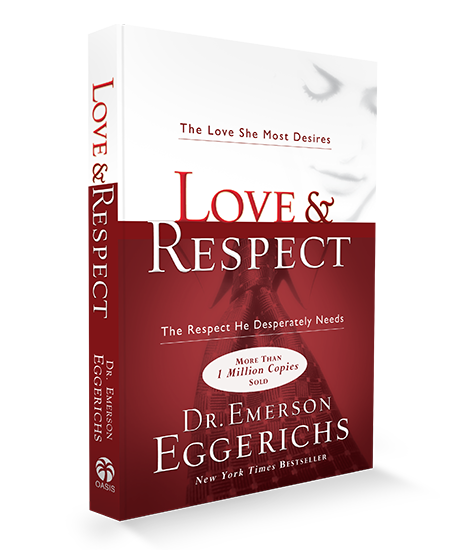7 Myths About Marriage and the Truth About Covenant Love
- revorges
- Sep 19
- 6 min read
Clearing up Misconceptions
Every marriage is built on something. The foundation is either built on myths that mislead us or truth that sustains us. The problem is, many couples step into marriage with a severe lack of knowledge, carrying cultural myths that set them up for disappointment. Fairy tales promise happily-ever-after. Romantic comedies suggest constant excitement that always ends in intimacy. Society at large has reduced marriage to a contract of convenience. But when reality hits and doesn’t match those expectations, couples feel blindsided and disillusioned.
That’s why the Bible points us to covenant: God’s design for marriage that is stronger, deeper, and more enduring than silly cultural myths about marriage. Sometimes the best way to understand what something is, is to first understand what it is not. By exposing the myths, we can see the truth more clearly. So let’s uncover seven common myths about marriage—and discover the covenant truths that supersede them.
When couples walk into marriage with the wrong expectations, disappointment is almost guaranteed. If you think marriage will be like a fairy tale, the first major conflict can feel like betrayal. If you think it will be a pleasure cruise, the daily grind will feel like failure. If you think it’s simply a social strategy, you’ll miss the sacred dimension altogether.
I’ve sat across from many couples in counseling who weren’t struggling because they didn’t love each other, but because they carried unrealistic expectations or unbiblical ideas into their marriage. They were shocked that real marriage included conflict, sacrifice, and perseverance.
So let’s clear the air: here are seven things marriage as covenant is not.

Myth #1: Marriage Is About How I Feel
Truth: Covenant Love Chooses Even When Feelings Fade
Feelings matter. Attraction, romance, and affection are gifts from God. It’s good to enjoy butterflies in your stomach, surprise date nights, or the thrill of being pursued. God gave humans the capacity to experience a broad range of emotion. But feelings are not strong enough to carry the weight of a marriage.
Why? Because feelings change. They ebb and flow like the tide. Sometimes you’ll feel deeply in love; other times you’ll feel distant. If marriage depends only on feelings, it will fall apart.
Covenant is deeper. Covenant says, “Even when I don’t feel it, I choose it.”
The Bilbe reminds us that love is more than emotion. Love is action. 1 Corinthians 13 describes love as patient, kind, not easily angered, and enduring all things. That’s covenant love. It holds when the feelings don’t.
Myth #2: Marriage Should Always Be Fun and Easy
Truth: Covenant Endures Through Storms and Struggles
Many people enter marriage expecting endless fun, like an extended honeymoon. But marriage is not a cruise ship; it’s not designed to cater to your every pleasure.
Real marriage includes:
Bills that need to be paid.
Chores that nobody wants to do.
Sleepless nights with sick children.
Seasons where one spouse carries the other emotionally.
Covenant love doesn’t abandon ship when the seas get rough. It steadies the boat and says, “We’ll face this storm together.”
Ecclesiastes 4:9–10 reminds us: “Two are better than one… For if they fall, one will lift up his fellow. But woe to him who is alone when he falls and has not another to lift him up!” The covenant isn’t about avoiding storms, it’s about enduring them side by side.

Myth #3: Marriage Is a Fairy Tale Ending
Truth: Covenant Is Hard Work That Produces Lasting Joy
Our culture sells “happily ever after” as the standard for love stories. But if you’ve been married longer than a year, you know fairy tales don’t prepare you for clogged drains, disagreements about parenting, problems with in-laws, or walking through grief together.
The Bible makes it plain that a good marriage (a godly marriage) is hard work. It takes sacrifice, patience, forgiveness, and perseverance. Covenant embraces reality, not fantasy.
In Ephesians 5, Paul calls husbands to love their wives “as Christ loved the church and gave himself up for her.” Likewise, in Ephesians 5, Paul calls wives to submit to their own husbands "as to the Lord." That’s not fairy tale language. It’s cross-bearing language. It’s the language of sacrifice.
The irony is this: while covenant marriage may not always feel magical, it produces something fairy tales can’t—depth, intimacy, and a joy that’s rooted in faithfulness, not fantasy.
Myth #4: Marriage Is Just a Practical Strategy
Truth: Covenant Is God’s Tool for Holiness, Not Just Convenience
Some people see marriage as a partnership for multiplying resources. Two incomes, shared housing, tax benefits, and pooled skills. Those are practical benefits of marriage, but they’re not the point.
Marriage is not simply about efficiency; it’s about holiness. God designed it not just to improve your quality of life, but to shape your character.
In fact, marriage will expose your selfishness like nothing else. It will expose your pride, stretch your patience, and confront your tendency to put yourself first. And that’s exactly the point.
James 1:2–4 teaches us that trials produce maturity. Marriage is one of God’s favorite tools for sanctification. If you view it only as a financial or strategic partnership, you’ll miss the refining work God intends.

Myth #5: Marriage Is a Human Idea
Truth: Covenant Marriage Originates With God’s Design
Marriage isn’t a human invention or a social construct dreamed up for convenience. It’s God’s idea. God created marriage. That means He defines it. He sustains it. He blesses it. And yes, that also means He gets to restrict it.
From the very beginning, God said in Genesis 2:18, “It is not good that the man should be alone; I will make him a helper fit for him.” Marriage was His solution for companionship, intimacy, and purpose.
When we reduce marriage to a culturally “good idea,” we make it negotiable. But when we rightly see it as God’s invention, we recognize its sacredness. Covenant marriage is not up for redefinition, because it flows from God’s design.
Myth #6: Marriage Is Only a Theory or Concept
Truth: Covenant Is a Daily Practice of Love and Faithfulness
Marriage isn’t a sociological experiment to be debated in textbooks. Marriage is a lived reality, a daily practice, and a divinely design gift to humanity meant to shape lives and families.
Sometimes couples approach marriage like it’s a theory, something that works on paper but not in practice. They imagine it as an abstract ideal rather than a gritty, everyday commitment.
But covenant is lived in the daily grind. It shows up in who takes out the trash, who makes the coffee, who apologizes first, who forgives, and who keeps showing up even when it’s hard.
Romans 12:10 says, “Love one another with brotherly affection. Outdo one another in showing honor.” Marriage isn't a theory. Marriage is practiced honor, daily grace, and lived-out covenant faithfulness.

Myth #7: Marriage Is Like a Lease Agreement
Truth: Covenant Vows Are Lifelong Promises Before God
Leases expire. Covenants do not.
A lease gives you the right to walk away after a set term. Covenants don’t have expiration dates. When you stood before God, family, and friends and said, “I do,” you weren’t signing a lease. You were making a lifelong vow.
Ecclesiastes 5:4 warns, “When you make a vow to God, do not delay to fulfill it. He has no pleasure in fools; fulfill your vow.” Marriage vows are not suggestions. They are sacred promises.
That’s why Jesus’ words in Matthew 19:6 are so powerful: “What therefore God has joined together, let not man separate.”
Biblical Perspective
Scripture consistently reinforces the covenant view of marriage. Malachi 2:14 calls marriage a covenant, not a convenience. Ephesians 5 points to Christ’s love for the church as the model for marriage.
This means marriage isn’t fragile or disposable. Marriage is sacred. It’s meant to reflect God’s own faithfulness, showing the world that His love never quits.
Practical Application
Couples who expect marriage to be all romance, ease, or strategy often end up disillusioned. But couples who embrace the covenant expectations of commitment, sacrifice, perseverance, and faithfulness find something deeper than fleeting happiness. They discover joy rooted in trust, security, and mutual devotion.
Here are some questions for reflection:
Do I rely too much on feelings to sustain my marriage?
Do I see marriage as a convenience or as a covenant?
Am I investing daily in small acts of covenant love?
When couples shift from myths to truth, their marriages find strength.
A Better Vision
Covenant marriage may not always feel magical (although there can be plenty of magical moments), but it is deeply meaningful. It shapes character, provides safety, and reflects God’s faithful love toward us.
The world says marriage is fragile. God says it’s sacred. The world says it’s temporary. God says it’s eternal covenant. The world says it’s about happiness. God says it’s about holiness.
God's vision for your marriage is better than the myths the culture wants you to believe.
Build on Truth, Not Myths About Marriage
If you want a lasting marriage, start by rejecting the myths. Don’t build your relationship on feelings, fantasies, or strategies. Build it on the covenant love of God.
Here are three great resources for couples getting married, newlyweds, and grizzled vets:







Comments